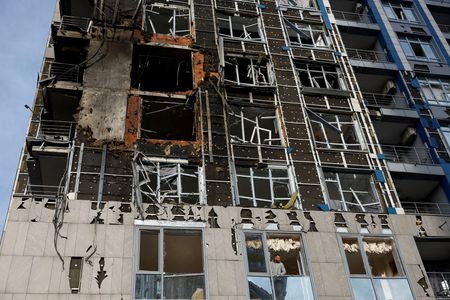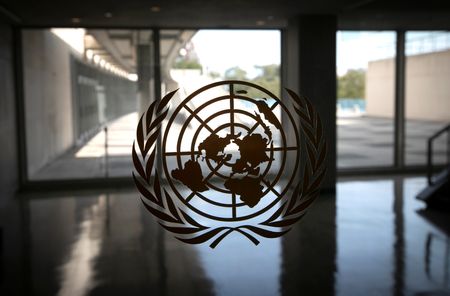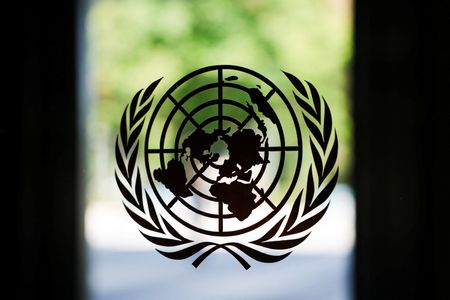BUCHAREST (Reuters) – Centrist Liberal Party leader Ilie Bolojan became Romania’s interim president on Wednesday, facing the uphill challenge of steering the country through a repeat presidential election in May with the far right on the rise.
The European Union and NATO member state was plunged into institutional chaos in December when a presidential election was voided after accusations of Russian meddling in favour of the far-right, NATO-critic frontrunner.
The cancellation came after a parliamentary ballot in which hard-right parties won 35% of seats in the legislature and became a hard-to-avoid political force, capitalising on popular discontent with pro-European establishment parties that have been mired in corruption allegations.
Bolojan, 55, who was also the senate speaker until Wednesday and was a long-term mayor and county council head, takes over from centrist Klaus Iohannis, who resigned as president on Monday to pre-empt an impeachment bid by opposition parties.
Hard-right lawmakers now plan to file a no confidence motion against the broad coalition government that includes Bolojan’s Liberals. It has a very slim majority in parliament that is expected to hold for now, although the risks of a potential collapse heighten political instability.
As interim president, Bolojan will appoint a new prime minister if the current government collapses.
Romania’s president, who is limited to two five-year terms, represents the country at EU and NATO summits and appoints the premier, chief judges, prosecutors and secret service heads.
The president also has a semi-executive role which includes heading the armed forces and chairing the supreme defence council that decides on military aid, most importantly for neighbouring Ukraine as it battles Russia’s invasion.
Until the presidential election re-run on May 4 and 18, Bolojan will face mounting pressure from a slowing EU economy amid U.S. tariff threats, and the challenge of lowering Romania’s budget deficit, the EU’s highest.
(Reporting by Luiza Ilie; editing by Mark Heinrich)










